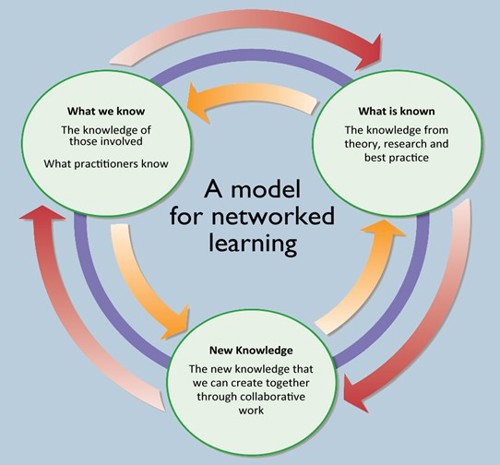Global voices, Scottish classrooms: exploring themes in education
Networked learning resources overview
On these pages you will find facilitated professional learning resources related to key themes drawn from keynotes and conversations with influential international researchers in the field of education.
Dr Santiago Rincón-Gallardo, Dr Pak Tee Ng and Professor Allison Skerret bring diverse perspectives and expertise from their research areas, offering valuable insights into global trends, innovative practices, and critical issues relevant to education in Scotland.
These keynotes and conversations took place within SLF 2023.
The key themes that emerged are:
-
Theme 1: why, what and who of education and how do we do it? (estimated completion time 1 hour 30 minutes)
-
Theme 2: education as social movement (estimated completion time 1 hour 20 minutes)
-
Theme 3: your leadership of change (estimated completion time: 2 hours)
-
Theme 4: self-care through change (estimated completion time 1 hour)
The resource is designed in such a way that you may work sequentially through each theme or pick out themes that best suit your professional learning needs at the time. If you wish to complete all four themes, this will take roughly 5 hours and 50 minutes.
The resource is written in the style of a facilitated guide for networked learning, meaning that the reader(s) should use it to lead a group of educators through the learning.
We would recommend a group size of 4 plus – the group may be a mixture of stages and sectors from across the education system.
Within each theme you will find time stamps to clips from the three keynotes, hosted on YouTube, and then suggested activities and reflective questions to enable the group to consider the keynotes in greater detail.
These activities will be a mixture of independent reflection and small group work, as well as whole team discussions.
The activities and questions are suggestions and facilitators are encouraged to adapt and change them in accordance with the needs of the group they are working with.

(Source: National College of School Leadership)
The overall aim of this resource is to support educators to consider the key messages from these keynotes and conversations and how these relate to the Scottish education system and their role within it.
This will involve considering their own personal beliefs and practice as well as wider, societal issues.
Effective professional learning goes beyond simply delivering information. It fosters a learning community where educators can learn with, from, and on behalf of one another. To achieve this, the facilitator of this learning should establish clear protocols and a positive learning environment at the outset.
The general notes below will support the facilitator to help everyone feel comfortable participating and contribute to a rich learning experience.
Contract a safe space
Co-create a safe space agreement with your group. This agreement outlines expectations for respectful communication and active listening. A safe space allows trust to flourish, fostering a collaborative environment where everyone feels comfortable sharing ideas and taking risks.
Shift from top-down to collaborative learning
Move beyond the traditional model where one person imparts knowledge. Embrace a collaborative approach where all participants actively engage. This means learning with, from, and on behalf of one another. By leveraging the diverse perspectives within the group, gaining a richer understanding and creating a more impactful learning experience for everyone.
Holding the ladder: shared expertise and recognition
Holding the ladder signifies a two-fold approach:
Sharing expertise: Those with experience can share their knowledge and insights.
Recognise everyone's contribution: actively listen and be open to learning from the unique perspectives and experiences of colleagues. Build on each other's ideas to foster a collaborative environment where everyone feels valued, and their contributions are respected.
Hold space for silence and respectful discussion
Hold space for silence after someone speaks or asks a question. It can be tempting to jump in to fill silence but allowing time for quiet can avoid interrupting thought and produce more thoughtful responses. Everyone deserves to be heard and understood.
Adapt the time allocation based on the size of the group and the complexity of the topic.
Schedule regular breaks:
Schedule regular breaks throughout the session. This allows participants to process information, refocus, and return with renewed energy, leading to a more productive learning experience.
Centre learning in real life:
Connect the learning to real-life experiences by encouraging participants to share relevant personal anecdotes or applications. This strengthens understanding and makes the learning more relatable and impactful for all.
For those keen to find out more about Leading Professional Learning, we have a new programme which supports participants to cultivate a whole school/cluster/local authority approach to fostering a culture of impactful professional learning.
